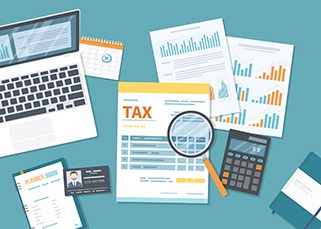
IRS Reinstates Form 1099-NEC to Avoid Additional Burden on Taxpayers
By Susan Crockett, Tax Senior Associate | Family, Executive & Entrepreneur Advisory Services Team
The IRS has reinstated Form 1099-NEC to avoid additional burden on filers to separately report nonemployee compensation by January 31, and other payments by February 28 (by March 31 if filing electronically).
Nonemployee Compensation Filing Deadlines
Effective with tax year 2020, nonemployee compensation will be reported on Form 1099-NEC, Nonemployee Compensation, instead of reporting in box 7 of Form 1099-MISC. The filing deadline for Form 1099-NEC is January 31 to both the recipient and the IRS. Note as January 31, 2021, falls on a Sunday, the deadline is actually February 1, 2021.
The IRS revised Form 1099-Misc to remove box 7 nonemployee compensation and rearranged box numbers for reporting certain income. The revised Form 1099-MISC is effective for 2020 reporting. The type of payments typically required to be reported on Form 1099-Misc include royalties, rent, prizes and awards. The filing deadline for Form 1099-MISC is February 1, 2021, (since January 31 falls on a Sunday) to the recipients and February 28 to the IRS (March 31, if filed electronically).
Form 1096, Annual Summary and Transmittal of U.S. Information Returns, was updated to include Form 1099-NEC and box 7 was removed. Form 1096 is used when mailing Forms 1099 and is filed with each type of form as the transmittal document. The forms must be grouped by form number and each group submitted with a separate Form 1096. For example, if Forms 1099-NEC and 1099-MISC are required to be filed, complete one Form 1096 to transmit Forms 1099-NEC and another to transmit Forms 1099-Misc.
Payments to Attorneys
- Attorneys’ fees for services of $600 or more paid in the course of a trade or business are reported in box 1 of Form 1099-NEC, regardless of legal classification (unincorporated, LLC or Corporation).
- Gross proceeds paid to attorneys of $600 or more paid in the course of a trade or business in connection with legal services are reported in box 10 of Form 1099-Misc, regardless of legal classification (unincorporated, LLC or Corporation).
Electronic Payments to Vendors
Payments made by debit or credit should not be reported on Form 1099-NEC or Form 1099-MISC. Electronic payments are reported on Form 1099-K, Payment Card and Third-Party Network Transactions, by the merchants and third-party networks who collect the payments.
Electronic Filing
Taxpayers filing 250 or more information returns must file them electronically via the FIRE System (Filing Electronic Returns Electronically). The 250-or-more requirement applies separately to each type of form. For example, if you must file 300 Forms 1099-NEC and 100 Forms 1099-Misc, you must file Forms 1099-NEC electronically, but you are not required to file Forms 1099-Misc electronically. The Taxpayer First Act of 2019 authorized the IRS and Treasury to issue regulations that could reduce the 250-return limit to 100 and then to 10 in future years. The electronic filing requirement does not apply if you apply for and receive a hardship waiver.
In order to meet the new filing requirements, we recommend that you review your accounting system and make changes to separate Form 1099-NEC reporting from other 1099 reporting.
Form 1099 Extensions
Form 8809, Application for Extension of Time to File Information Returns, can be filed to request a 30-day extension to file Forms 1099. Extensions for Form 1099-NEC require an explanation and a signature and are only approved for specific hardship conditions. Form 8809 needs to be filed by the original due date of the returns in order to get the 30-day extension.
Please refer to the following IRS publications for additional information and guidance:
- 2020 General Instructions for Certain Information Returns
- 2020 Instructions for Forms 1099-Misc and 1099-NEC
- Filing Information Returns Electronically (FIRE)
Questions on this or other tax filing requirements? Contact your Opportunity Advisor or Email | Call: 804.747.0000. We are here to help.
Additional Resources
About the Author
The information contained within this article is provided for informational purposes only and is current as of the date published. Online readers are advised not to act upon this information without seeking the service of a professional accountant, as this article is not a substitute for obtaining accounting, tax, or financial advice from a professional accountant.



